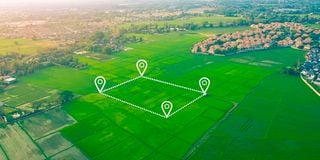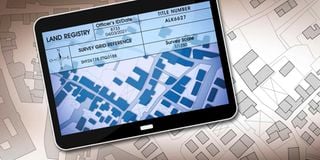Ardhisasa: Two years on, what happened to the lofty promise?

Previous governments have put in place several remedial measures aimed at curbing land fraud, with the most recent intervention coming about two years ago, when The National Land Information Management System was launched.
Kenya gained independence 60 years ago, but land ownership continues to be a very contentious and emotive issue. Reportedly, more than half of all ongoing cases in our law courts are land related.
Historical injustices, fraud and the manipulation of land documents at state offices have created a crisis that has seen many rightful owners of land lose property of value to unscrupulous individuals well-connected to government officials working in the lands’ ministry. Early in the year, two individuals illegally accessed a Karen home belonging to an elderly couple claiming ownership, only to be stopped by neighbours, who said they knew the real owners of the property. The two had presented fabricated documents.
In another case that is currently ongoing in court, officials of a self-help group and a former chief were charged with intent to defraud a third party of 11.8 acres of land in Donholm, Nairobi, by forging a lease agreement purportedly signed by a land registrar.
Ardhisasa was developed to address such illegalities.
In an attempt to fix this issue, previous governments have put in place several remedial measures aimed at curbing land fraud, with the most recent intervention coming about two years ago, when The National Land Information Management System was launched.
The platform, popularly known as Ardhisasa, would enable Kenyans to conduct key land transactions online. This would reduce the need for direct interaction between officials in the lands’ ministry and landowners, buyers, as well as other industry stakeholders. Reducing physical interactions would also help to minimise opportunities for rogue officials to ask for bribes in order to facilitate certain transactions.
It would also eliminate the need for physical visits to the Ministry of Lands, thereby helping to reduce the long queues at Ardhi House, as well as the time and money people would spend just to conduct simple transactions such as land searches.
All land records would need to be updated and verified to eliminate the challenges of double registration and allocation of land. To further minimise the risk of fraud, the platform would use blockchain technology to secure land transactions and records.
In essence, the platform would act as a one-stop shop for several land transactions, including conducting land searches, registration of leases and cautions and replacement of titles. Stakeholders would also use the platform to extend or renew leases, change users, issue certificates of compliance, conduct asset valuation and administer estates.
“The Ardhisasa platform was developed to ease land transactions in The Ministry of Lands. Ideally, with Ardhisasa, one would not physically need to go to Ardhi House or the lands office. One could interact with the platform and get the required services from the comfort of their location. If it worked, then the platform would offer the convenience that was promised of a Digital National Land Information Management System,” says James Waswa, a Property Consultant with Chrisca Real Estates.
Mr Waswa, however, says that this has been far from the case since the platform is marred by several complications, which, as opposed to helping streamline land transactions, has actually created a lot of unnecessary delays that have frustrated land transactions. For instance, Waswa points out that many users are still experiencing difficulty in uploading and updating titles and leases. Restricted searches, missing details in the searches and mismatches of data are other commonly encountered problems while interacting with the platform.
While it was promised that the time taken to do a single land transaction through the platform would come down to 48 hours, while that of getting a land search result would come down to between 3-5 minutes, users interviewed claim that it takes an average of one month to conduct a search and more than three months to conduct a transaction.
“Stakeholders in the real estate industry have had a fair share of challenges while using the platform. When doing a search, it will take ages before you get a result. This has led to stalling of land transactions, for example, buying and selling of land as there is no information from the platform. Banks have also had difficulties in charging properties,” notes Mr Waswa.
Loss of business
Early last year, the financiers’ advocacy group, Kenya Bankers Association, highlighted that its members were losing business worth billions of shillings due to delays experienced during the registration of charges. The bankers claimed that because they could not get search results on time, they, in turn, could not disburse loans on time to landowners who needed the credit to boost their other businesses.

The Ardhisasa platform was developed to ease land transactions in The Ministry of Lands. Ideally, with Ardhisasa, one would not physically need to go to Ardhi House or the lands office.
The bankers also claimed they faced frustrations from uncooperative owners when they needed to conduct searches and sales of distressed properties because of the approval process required.
Many other key stakeholders such as registered private valuers, realtors and surveyors, who regularly engage in land transactions on behalf of clients, continue to face similar difficulties in conducting background searches on properties that are, for instance, targeted for forced sale by lending institutions, because owners of such properties are unlikely to give permission for searches to be conducted against their properties.
While the move to digitise and streamline land records has been highly welcome, most of these professionals have expressed concerns over its feasibility based on the difficulties encountered in registering and upgrading professional accounts.
“The platform is mostly accessed by officials from the National Land Integrated management system. It is difficult to register and upgrade professional accounts to the platform,” notes Mr Waswa.
The fact that many landowners in Kenya are unaware of its existence, let alone its benefits, has also rendered Ardhisasa ineffective. Others who are aware of its existence, do not understand how to navigate through the platform.
For this reason, many property owners are yet to upload their property details for verification, so, while some delays in obtaining results may come from the ineffectiveness of the platform, many of the delays are due to a lack of data on land records. Making the system interface more user-friendly could make it easier to access and make transactions.
“There is a need to educate the public about Ardhisasa as not all Kenyans are computer literate. A significant percentage of landowners are also not aware of what is required from them in terms of uploading titles and searches and creating an account,” says Job Kimani, a director at real estate firm Zani Properties.
Kimani says that because the system can only be used by people who are computer savvy, those who cannot use digital devices become easy prey for conmen, who may disguise themselves as professionals.
“There are also some identification issues. Sometimes the identification details do not tally with the information at the registry of persons, therefore one is not able to transact on the system,” says Kimani.
International investors are also locked from accessing the platform as it can only be accessed by Kenyan citizens and does not provide for guidelines on how foreigners can access the system. According to the Ministry of Lands, the government is in the process of integrating Ardhisasa with the Immigration department so as to be able to get verified personal information to make it possible for customers to transact.
“As it stands, foreigners and customers with alien IDs cannot transact on the system because there is no mechanism created in the system to verify their personal details. So, they have to proceed manually, but almost all land transactions have to be done on Ardhisasa,” explains Kimani.
Gikonyo Gitonga, the Managing Director of Axis Real Estate, says that once Ardhisasa was launched, the manual system of transactions, transfers, and conducting official title searches was shut down, and most things had to be moved to the digital platform.
Not prepared
Unfortunately, however, the government was not adequately prepared, ministry staff had not been properly trained on how to use Ardhisasa, and there was very little engagement with other stakeholders.
“From the onset, the formulation of Ardhisasa involved a lot of secrecy, and the officials at that time were not very engaging with the stakeholders. The new government has put in some more effort to implement it. They did an audit, identified certain failings of it, but it is almost like trying to rebuild it again,” says Gitonga.

While it was promised that the time taken to do a single land transaction through the platform would come down to 48 hours, while that of getting a land search result would come down to between 3-5 minutes, users interviewed claim that it takes an average of one month to conduct a search and more than three months to conduct a transaction.
This, and the fact that the government is trying to implement several other land reforms all at once is, according to Gitonga, creating a lot of confusion.
“At the same time that they were trying to do the digitisation, they started trying to implement what is called the Sectional Properties Act, Sectional titles and also the title conversion. So, they were trying to do too many things at the same time, and perhaps this is the reason why not much has been seen of the Ardhisasa,” states Gitonga.
Delays in transactions on the Ardhisasa platform, which in extreme cases has gone even up to two years, have frustrated many of the industry’s stakeholders. Developers for instance have been discouraged from undertaking projects supporting the Affordable Housing Programme because of the long time it takes to get feedback. The government has also lost a lot of money because it has not been able to collect stamp duty and capital gains tax due to delays in transactions.
Early this year, the Law Society of Kenya and the Institution of Surveyors of Kenya held joint demonstrations to voice some of these concerns. This resulted in the formation of a joint committee, in a meeting that was chaired by top government officials that would comprise the Law Society of Kenya, the Kenya Bankers Association, the Institution of Surveyors of Kenya and the Ministry of Lands officials.
Its purpose was to review the operation of Ardhisasa, look into the system audit that the ministry did, and make recommendations on what needed to be done to unlock the transactions that have not been launched and have not been progressed, and what needs to be done to make it functional and efficient.
“When we get the interim report on what the committee has filed, then we will be able to make decisions on what needs to be done, and hopefully within three months, we could have some of the contentious issues resolved. This system was generally meant to enhance transaction efficiency in the registry. Transactions of transfers, charging and registering portions should be expeditious,” says Abraham Samoei, President of the Institution of Surveyors of Kenya.
Meanwhile, Samuel Kariuki, the CEO of Mi Vida Homes, says that the long-term impact of Ardhisasa, when full migration to the platform is actualised, will be a significant leap forward in addressing the historical challenges with land transactions. Not only would it address the lengthy bureaucratic processes which introduce unnecessary opportunity costs in the industry, but it would also provide a much greater sense of certainty and security in land transactions. He, however, says a number of things need to be addressed.
He, for instance, recommends making provisions for a parallel changeover where the manual system and digital system are run in parallel, to avoid bringing transactions to a complete halt.
This will address the current delays in transactions at the tail end of the registration process. Making provisions for diverse ownership structures that, for example, recognise overseas institutional developers with interests in Kenya, will also be a timely intervention.
“The platform does not account for the diverse ownership structures by which some real estate portfolios are held, for example by multinational institutional developers. Additionally, once a developer commences the digital conversion process, they are not able to carry out transactions on the property or properties that fall under that specific title until the digital conversion is complete. This causes a significant disruption to commercial operations and has a direct impact on cash flows,” says Kariuki.





